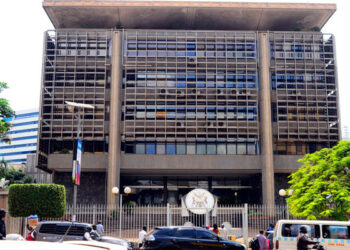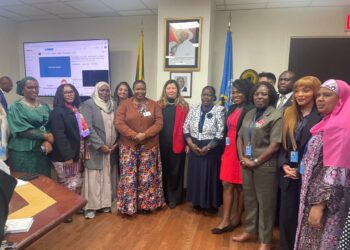The World Health Organisation (WHO) has issued out 10 guidelines to Democratic Republic of Congo (DRC) and Uganda on how they can prevent Ebola.
Early this week, Uganda confirmed Ebola outbreak in Kasese District amid deadly cases in neighbouring DRC; More than 2,000 cases have been recorded there in the last 10 months – most of which have been fatal.
The Health ministry announced an Ebola alert on Tuesday evening after a five year boy from the DRC tested positive for Ebola shortly after crossing into Kasese District.
He died hours later followed by his grandmother later in the day at Ebola Treatment Unit at Bwera Hospital in Mpondwe-Lhubiriha town council.
Following the registered Ebola cases, WHO on Friday convened a meeting where it issued preventative guidelines to both countries.
According to WHO Spokesperson Tarik Jasarevic, in the meeting, the countries were recommended for their effort and collaboration in the fight against the disease.
“The Committee wishes to commend the heroic work of all respondents, who continue to work under extremely challenging and stressful conditions,” he said.
The Committee provided the following public health advice, which it strongly urged countries and responding partners to heed:
1. At-risk countries should improve their preparedness for detecting and managing exported cases, as Uganda has done.
2. Cross-border screening in DRC should continue and its quality improved and sustained.
3. Continue to map population movements and sociological patterns that can predict the risk of disease spread.
4. All priority countries should put in place approvals for investigational medicines and vaccines as an immediate priority for preparedness.
5. Optimal vaccine strategies that have maximum impact on curtailing the outbreak, as recommended by WHO’s Strategic Advisory Group of Experts (SAGE), should be implemented rapidly.
6. The international community must step up funding and support strengthening of preparedness and response in DRC and neighbouring countries.
7. Continue to strengthen community awareness, engagement, and participation. There has been a great deal of progress in community engagement activities. However, in border communities, where mobility is especially likely, community engagement needs to be more sharply targeted to identify the populations most at risk.
8. The implementation by the UN and partners of more coordinated measures to reduce security threats, mitigate security risks, and create an enabling environment for public health operations is welcomed and encouraged by the Committee as an essential platform for accelerating disease-control efforts.
9. The Committee strongly emphasizes its previous advice against the application of any international travel or trade restrictions.
10. The Committee does not consider entry screening at airports or other ports of entry to be necessary.
Do you have a story in your community or an opinion to share with us: Email us at editorial@watchdoguganda.com











